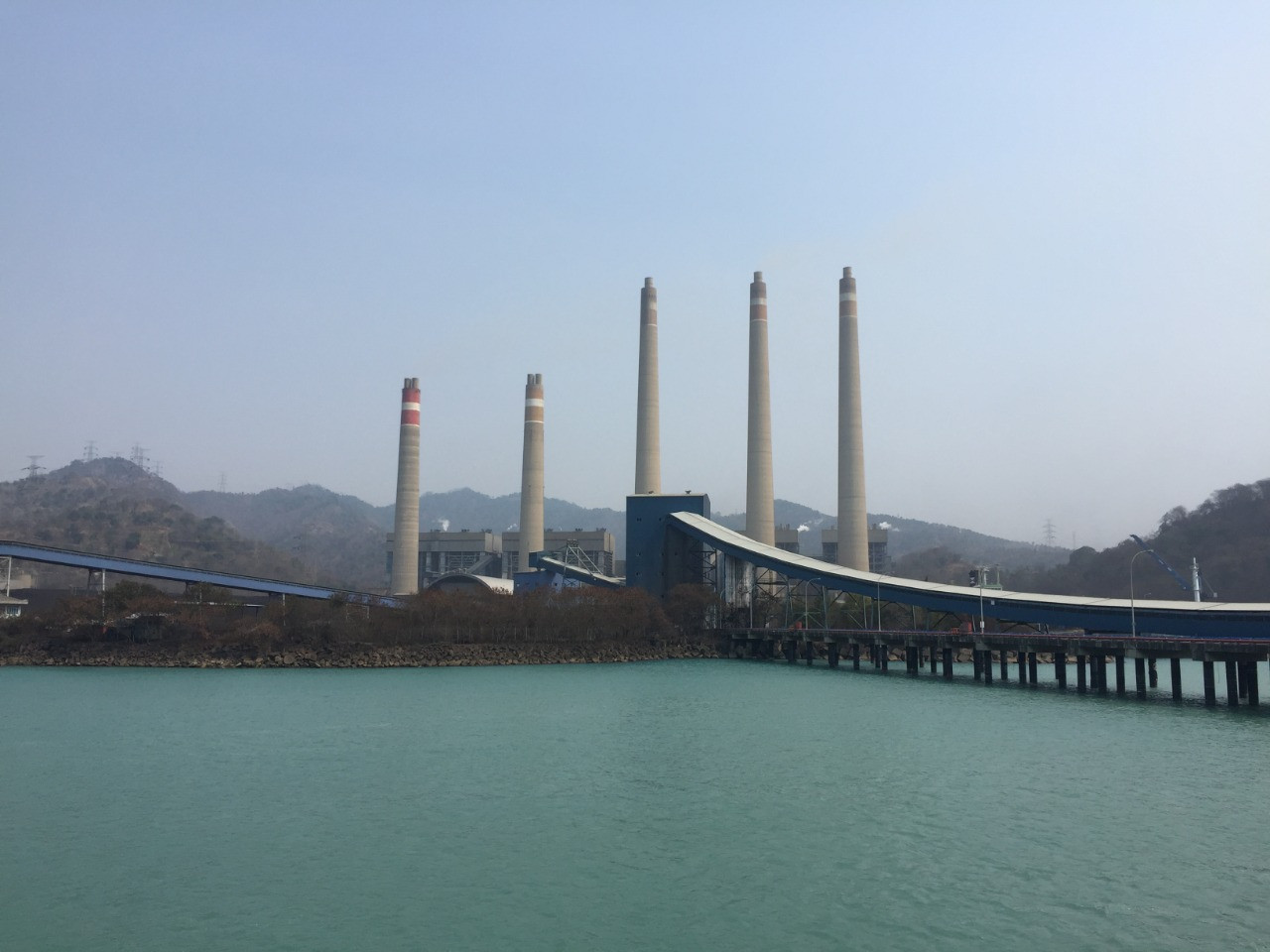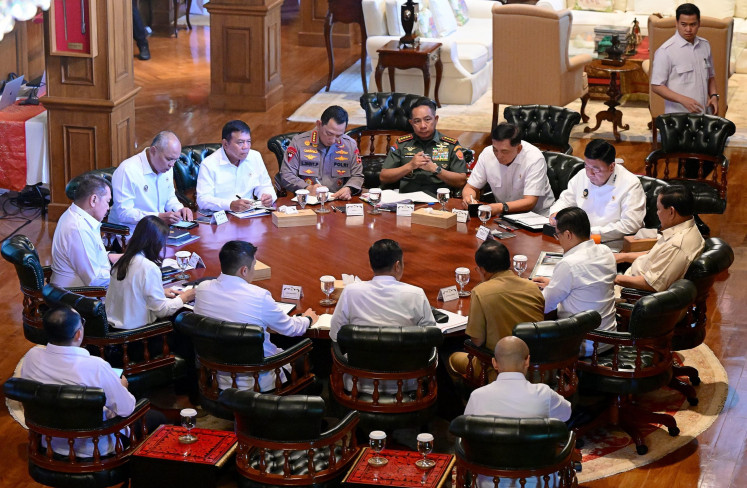Popular Reads
Top Results
Can't find what you're looking for?
View all search resultsPopular Reads
Top Results
Can't find what you're looking for?
View all search resultsADB, PLN consider plan to retire Indonesian coal plants early
The Asian Development Bank (ADB) plans to start buying facilities in 2022, before Indonesia takes over the G20 chairmanship that same year.
Change text size
Gift Premium Articles
to Anyone
T
he Asian Development Bank (ADB) is working on a financing scheme to buy coal-fired power plants (PLTU) in Indonesia and retire them early, hoping to expedite the energy transition in one of the world’s top carbon dioxide-emitting countries.
The ADB, state-owned electricity monopolist PLN and other stakeholders are finalizing a pre-feasibility study on the scheme, called the Energy Transition Mechanism (ETM). The preliminary study includes a system analysis, plant modeling and a regulatory and policy review. It is to be followed by an in-depth feasibility study.
“Throughout the process, ADB is collaborating with its longstanding and valued partner PLN and other local stakeholders to determine the best path forward for ETM in Indonesia,” ADB senior energy specialist David C. Elzinga told The Jakarta Post on Aug. 16.
Similar studies are being conducted in Vietnam and the Philippines as fellow coal-reliant developing Southeast Asian countries.
The ETM is a new approach to tackling what experts have described as the key hurdle to reaching Indonesia’s net-zero emissions goal, which is the long remaining lifespan of domestic coal plants, the current backbone of power generation in the country.
As of April, PLN was operating coal plants with a combined capacity of 32,924 MW, accounting for 45 percent of Indonesia’s total installed power plant capacity. More such plants are in the pipeline, Energy and Mineral Resources Ministry data shows.
The ministry estimates that Indonesia’s last coal plant will be retired in 2058 and that the country may only achieve net-zero emissions by 2060. That would be later than the international benchmark of carbon neutrality by 2050.
Energy Ministry Electricity Director General Rida Mulyana said the government could not afford to compensate plant developers to retire coal plants earlier.
Read also: No urgency' for Indonesia to reach net zero: Energy ministry official
“Coal power is the single largest source of human-made emissions. If we don't address it, we’re not going to hit the Paris Agreement targets,” said ADB Southeast Asia energy director Toru Kubo of the ETM at a webinar hosted by the bank on July 22.
PLN spokesperson Arsyadany Akmalaputri told the Post on Aug. 18 that the electricity company was open to discussions on the ETM as a means of ensuring environmentally friendly and sustainable power supply.
“With regard to coal [plant] retirement, this is an option when considered from the emissions reduction aspect. Still, there will be repercussions that need to be assessed in-depth,” she said.
The proposed scheme involves establishing an ETM body consisting of a Carbon Reduction Facility (CRF) to acquire coal plants and a Clean Energy Facility (CEF) to develop green energy facilities, such as power plants and energy storage systems.
The ETM would raise capital, either through debt or equity financing, to buy the plants, then operate them for a shortened period of time -- around 15 years or less -- to partly recoup their outlays. Indonesian coal plants typically have a lifespan of 30 to 40 years.
The ETM would also require the plants’ developers to reinvest the CRF funds in the CEF to develop green energy facilities, the proceeds of which would be used to repay the remaining investments.
“Accelerating the retirement of these coal plants would unlock so much investment in clean energy, storage, hydrogen, electric vehicles and other technology that are the growth industries for Indonesia and other countries,” added Kubo.
The Manila-based lender plans to begin acquiring coal plants for the CRF in 2022, before Indonesia chairs the G20 in October, then open the CEF for investors later that year, in time for the 27th United Nations Climate Change Conference (COP27).
Potential ETM inventors include private banks, philanthropists, multilateral organizations and the G7 countries, which pledged in a joint communique on June 13 to spend up to US$2 billion “over the coming years” to phase out coal and phase in green energy projects.
"The ETM is a laudable effort and definitely a step forward by the ADB. But it will not be able to replace all coal plants in the system, because that would need hundreds of billions of dollars,” said Institute for Energy Economics and Financial Analysis (IEEFA) analyst Elrika Hamdi on Aug. 20.
She added that it was important for the ETM to be stringent about the eligibility requirements and asset valuation of coal plants. It was also important for the ETM to ensure coal plant developers reinvested in low-cost renewable energy sources to optimize the transition.
Read also: ADB, Citi, HSBC, Prudential hatch plan for Asian coal plant closures: Sources
Reuters reported that the ADB was working on the plan with several finance companies, including insurer Prudential, lenders Citi and HSBC and BlackRock.
HSBC Indonesia president director Francois de Maricourt told the Post that the lender was committed to prioritizing financing and investment that supported the transition to a net-zero global economy.
“Addressing reliance on coal, particularly in Asia, is an urgent priority in the transition to net zero. There is a clear need for private-sector investment in initiatives that can accelerate a just and orderly shift to renewables,” he said.










